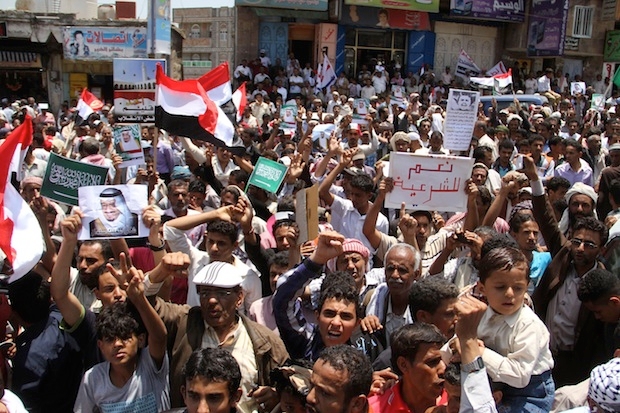Though it hasn’t been hitting the headlines recently, the situation in Yemen has been rapidly deteriorating and looks set to grow worse in the coming months. The country now seems to have fallen into all-out civil war, with a level of complexity which echoes the catastrophic war occurring 1,500 miles north in Syria.
The war in Yemen is part of the larger Sunni-Shia conflict currently shaking the Middle East. There are the Houthis, a Shia Islamist group, which back in February forced President Abdrabbuh Mansour Hadi out of Sana’a, the capital of Yemen. Hadi is supported by Sunni militia in the south of the country, as well as parts of the security forces who have remained loyal to him, and by a Saudi-led coalition which started bombing the predominantly Houthi-controlled west of the country in late-March.
The Houthis themselves are not alone either; they have the support of those in the security forces who back Hadi’s predecessor, Ali Abdullah Saleh, who belongs to the same Zaidiyyah sect of Shia Islam as them. Importantly they also appear to have the support of Shia-led Iran, which as yet has not become too involved in the conflict. However, the Saudi-led coalition fears that Iran’s nuclear deal will free up resources to help prop up the Houthis. As a result, they have begun to step up their efforts, pre-empting greater intervention by Iran. The war could be about to escalate drastically.
So far 3,800 people have died in the Yemen conflict– a fraction of the deaths sustained in Syria since 2011, which the Syrian Observatory for Human Rights currently puts at 230,000. However, there are multiple factors which indicate that the death toll may start to rise rapidly if the war continues.
According to the United Nations Office for the Coordination of Humanitarian Affairs, nearly 1.3 million people are now internally displaced and over 20 million people – or four in every five inhabitants – are considered to be in need of humanitarian assistance. That’s up from 7 million two years ago.
Yemen has had water shortages for decades. But since the start of the Saudi-led coalition’s heavy bombing of Houthi held areas in March, many water pipes, pumping facilities and storage tanks have been destroyed. As a result, it is thought that around 20 million people are struggling to find any drinking water. Disease is spreading rapidly because the population is being forced to use dirty water, and the UN has warned that lack of water could soon lead to famine.
Suffice to say that the Yemeni people are entrenched in a war that is becoming every bit as intricate and disastrous as the conflict currently raging in Syria, with very similar players in the game, a harshening humanitarian crisis and little prospect of it ending anytime soon.






Comments